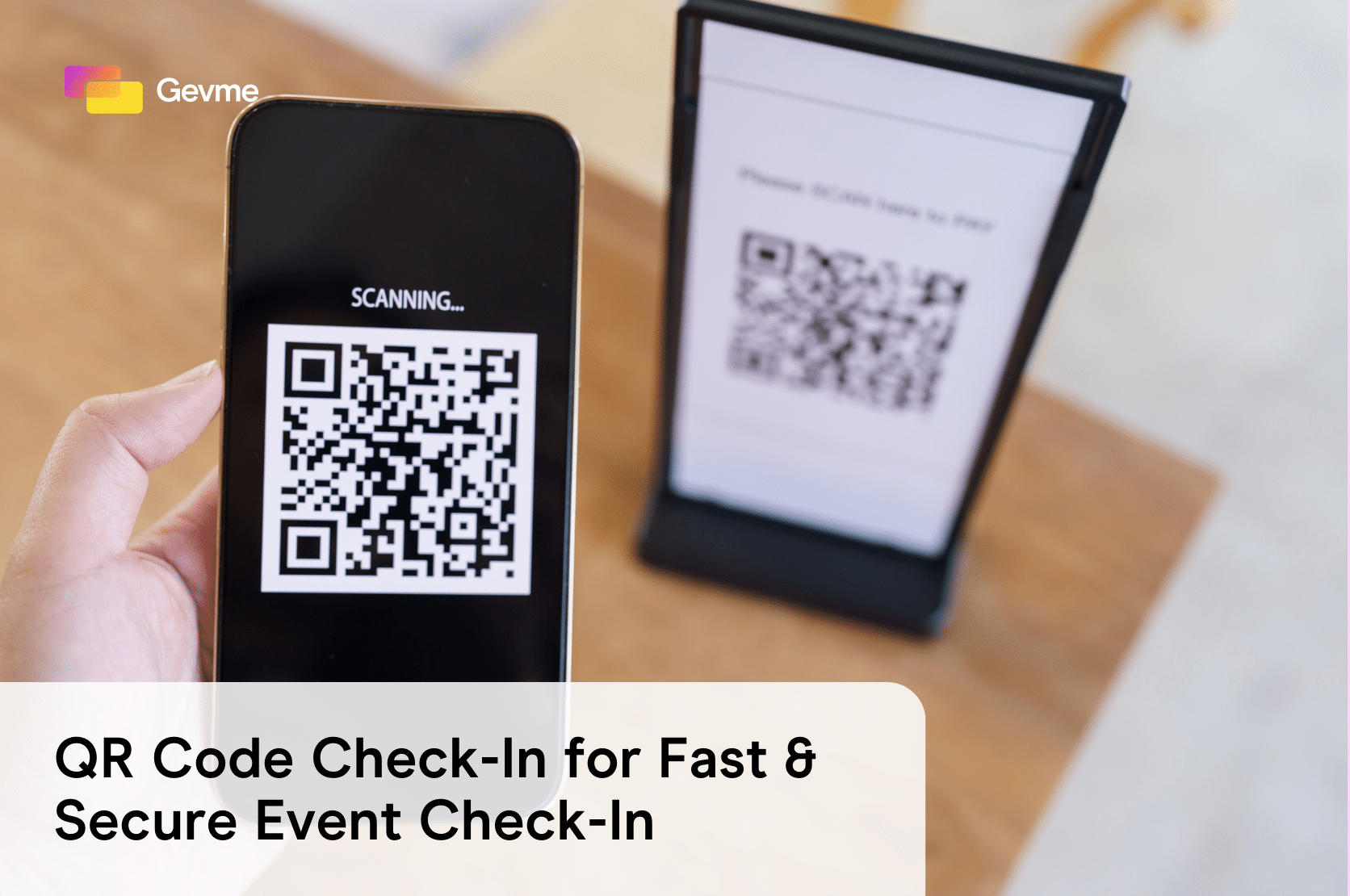More and more companies have been shifting to virtual events due to the pandemic, and the transition is providing a lot of benefits too. For instance, there are lesser overheads now, which earlier came in the form of booking an event venue, arranging food and beverages, etc. Also, it is way more convenient for employees in different parts of the city/country to attend the event with just a click of a button.
Therefore, virtual corporate events are here to stay even after the pandemic ends. Many successful event organizers have called this adaptation irreversible, and with a few exceptions, most events around the world will at least be hybrid (live format and virtual format together).
Hosting the virtual event is not a whole new skill set, although it requires some specific expertise. The fundamentals of event organization and management remain the same. Just the way it is done differs. Here, we have compiled the best tips and practices you need to know to successfully organize the next best virtual event in your company.
Understand the Purpose of the Event
This is a highly important step before organizing your virtual corporate events. You need to determine if the purpose of your event is to enhance your brand visibility or is it purely recreational?
Or is it to launch and showcase a particular product/service, or is the event focusing on bringing players from one industry together to network and interact.
The event can even be a virtual fair that hosts various businesses and their products and services. Else simply, the event can also be a conference with a few global delegates and qualified professionals speaking on a particular theme/topic.
Knowing the purpose of the event is the first step towards crafting an event strategy that works. This purpose determines the size and type of audience that will attend the event. This will also influence the different activities in the event, the duration, type of guests, and the marketing strategy to promote the event to potential audiences.
Once you have done this, it is time to go into more detail about your event and create its strategy. It does not have to matter if the event is large scale or small scale. An event strategy ensures that the focus of the event is maintained throughout the virtual corporate events planning and execution process. It simply gives a better event experience to the audience.
Through your event strategy, you determine if the event will be streamed live or pre-recorded. Or if the content will be available for the audience to view afterwards, too.
In the strategy, you also determine the date and time of the event, the type of audience, their age groups, and interests who will be attending the event. Following this, you create the marketing strategy and the means of registration. Since virtual corporate events produce a lot of data, you will be establishing Key Performance Metrics which will measure the success of your event through this data—for instance, the click rates, the ticket registrations to audience conversions ratio, etc.
Set The Realistic Event Budget
Having a budget beforehand ensures that you do not overspend on the different expenses. One of the major expenses for virtual corporate events is the technology platform that will host the event, and this is a highly important expense.
But the good side is that the cost of booking a venue, travelling, arranging food, beverages, gift giveaways will all be eliminated in virtual corporate events. However, you will need to assign some amount of money towards digital marketing and promotions.
Create segments within the budget and assign what percentage/amount goes for what. You can collect expenses from different vendors before making your budget sheet. If you are still not sure, it is better to talk to event organizers who have conducted events virtually to know what the different expenses will be and if there are some hidden expenses too.
On a broad scale, the expenses for a typical virtual event will be the sum of costs of the virtual corporate events planner team, marketing expenses, technology platform cost, fees for guests/speakers, tools, designs/creatives, participant/attendee benefits, and miscellaneous.
The target value that the event will be providing, calculated quantitatively, might be higher than the expenses for it to be a feasible and ‘financially successful event’.
Create a Project Timeline For Your Virtual Corporate Events
Conducting a virtual event is a project of its own. Every project needs to have a timeline and a virtual corporate conference planning done so that it is executed seamlessly and crosses all the hurdles that might occur during its execution.
The best way to begin with virtual event planning is to create a checklist. The checklist must include knowing and developing your audience persona, deciding the type of virtual corporate events you will be hosting for that audience, deciding where and how to host it, choosing the virtual event technology, creating the structure of the event, picking the date, and time of the event, inviting speakers and delegates to speak at the event, drafting and executing a digital marketing plan, getting sponsors on board, making event creatives and official pages live on social media platforms and the website and finally executing the event and collecting feedback.
To visualize the period for these activities, you can outlay all of them on a Gantt Chart. A Gantt Chart visualizes the period for each activity in the virtual corporate party planning process and delegates specific people to work on them. That way, you will ensure to stay on track with the deadlines.
Further, you need to have a risk assessment and mitigation plan in place for the virtual event. Here, you identify the different risks and figure out ways to mitigate them and assign responsibilities to counter these risks to different individuals within the event team.
All these details will constitute the project plan for your virtual event.
Decide Your Audience For Virtual Corporate Events
Knowing your audience crystal – clear is fundamental to providing a tailored event experience. You do not want to execute your event beautifully only for it to be broadcasted to the wrong audience who will not be able to engage with your event.
Figure out the demographics of your audience. What is their average age group, from which regions are they mostly going to be from, and what are their interests which could be relevant to the event you are going to provide.
You also identify if they have certain pain points or problems whose solution or discussion they want to be a part of during the event. Is there anything that is trending among the audience you have targeted that you can keep as the theme for the event?
Next, when it comes to the marketing part, you determine how strong your audience is going to be in social media skills. Will they have the capability to access your advertisements, creatives and generate a lead for you? Also, what kind of offers do they best respond to, for instance, is it going to be freebies, discounts, or something else?
If you do not know the audience, the best way is to send surveys to the potential audience. This survey must more or less ask all the questions areas mentioned above. The survey can be in any form as long as you get and record the information. See what the majority of the audience is saying, and from there, define the type and activities in your virtual corporate events plan.
Decide The Theme and Format For Your Virtual Corporate Events
The next step is to create the specific event content that includes both the theme and the format. Here you determine the different activities in the event and the duration of each activity. While deciding these, you keep in mind the experience of the attendees as they must have breaks, breakout sessions, and networking sessions at the right times.
You get the theme of the event from the initial survey you had done with the audience. If you have multiple options, you can perform an additional survey with a smaller group of potential audience and understand their preferences. This will help you decide which theme to go with first.
The format of the virtual corporate event, as discussed above, could be a conference, a networking session, a panel discussion, a podcast, etc. Depending on the audience persona and their requirements, you pick the right format. Virtual events have a lot of scopes to be customized to, so you may be able to combine multiple formats in one event, provided the event remains concise and impactful.
Select The Right Event Technology Platform For The Event
Another extremely important step because no matter how well you plan your event content, the right event platform only will be able to do justice to its delivery. There are plenty of event management platforms to choose from, especially given the boom after the pandemic, but you need to shortlist the ones that fit your needs, budget, and future goals.
It is always recommended to choose an end-to-end solution. This means that all required features and functionalities for your event must be available on the same platform. Otherwise, it will create a hassle and potentially engage more people to execute the event, increasing overheads.
The right event management platform will have an intuitive and easy-to-use user interface. This is highly relevant because a lot of the audience would not have been familiar with virtual event platforms even if they are tech-savvy. Following this, the event management platform must provide engaging and networking options. This also could be in the form of chat rooms, polls, question – answers, showing hand gestures such as raising hands, clapping, etc. All these eliminate the virtual distance between the event and the attendee.
To begin with, filter the top event management platforms according to their user reviews and ratings on trusted sites. Understand their features further and do a second round of filtering according to the type of event that the platform is best suited for. After this, pick the event management platform whose cost lies within your budget and has a good support team backing it so that you are helped in the case of troubles before and during the event.
Do The Promotion and Marketing of Your Virtual Event
One good and tricky part of virtual events is the increased potential audience. If the average demographic for the event audience is between 18-30, the best medium to promote the event is through social media. You can run paid ads, create event pages and post regular content that attracts an audience and enables them to check out your event.
Another way to promote your event is through Google Ads, where your event appears on relevant websites as a banner. This could be a slightly expensive option but effective in some cases.
Create a promotion plan for marketing your event and getting as much audience and engagement as you can. Leverage the power of social media in creating awareness about your event. For effective promotions, you might need to have a digital marketing or a social media expert within your event team who will approve the creatives, content and spend the budget most effectively.
Apart from this, you can also send emails to your email list, integrating the event details on your websites, and this can help in the amplification of your event.

Know The Technology During Your Virtual Event
Even the event organizers might feel in a new place while handling virtual event technology elements. If it is too overwhelming, you can include a tech person in your event organizing committee.
Else, have multiple demos and trial runs to understand how the event management platform works. Either share a quick reference guide that is provided by the event management platform company to the audience or create a short and easy to consume guide yourself for the audience to be quickly familiar with.
It is useful for the audience to have clarity on how the event management platform works, and it will be easy for them to navigate to the options most valuable to them.
Evaluate Your Event
During the event, collect feedback from the audience covering their review on everything from the event content, registration, and ticketing to the event platform. This will help you make decisions in upcoming events.
Go through the feedback and brainstorm changes that cater to the suggestions from the audience. The more feedback you get, the better you will be able to fine-tune the further versions of your event.
Share a token of appreciation with all the audience and make event clips and highlights available for them so that they can give a shout-out on their social media handles as well.
Conclusion
If you are new to conducting virtual events for corporations, the above steps must help you get started with the process. The fundamentals of event management remain the same but are adapted to the digital world. It is important to learn this skill now as the future of events is hybrid and virtual.
To know more about creating spectacular virtual corporate events get in touch with us and we will help you create a stunning experience.








